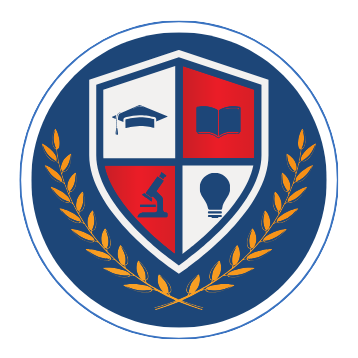What Counts as ‘Real Learning’ in Homeschooling? (Spoiler: It’s Not Just Worksheets)
Written By: Becca Wright, Co-Owner of Wright Homeschool Academy
One of the most common concerns new homeschooling parents have is whether they’re “doing enough.” When your child finishes their math lesson in 20 minutes and then spends an hour building LEGO cities or collecting bugs in the backyard, it can be tempting to wonder: Does this really count as school?
The answer is a confident yes.
In the world of homeschooling, real learning often looks very different from traditional classroom settings — and that’s the point. When you step away from worksheets and bells, learning can finally become what it was always meant to be: natural, connected, meaningful, and lifelong.
Why the Traditional School Model Isn’t the Only Way
In a public school environment, a lot of time is spent on transitions, crowd management, and standardized instruction. That system requires rigid structure — not because it’s best for learning, but because it’s necessary for managing 25+ kids in one room.
At home, you have the freedom to focus on what actually helps your child grow — curiosity-driven exploration, real-world experiences, hands-on activities, and deep conversations. Learning isn’t limited to desks and textbooks.
So What Does Count as Real Learning in Homeschooling?
Here are just a few powerful learning opportunities that happen outside the traditional school mold — all of which “count” in a homeschool setting:
1. Baking and Cooking
Math (fractions, measurement), reading comprehension (recipes), science (chemical reactions), life skills, and even history or geography when you explore cultural dishes.
2. Nature Walks and Outdoor Play
Biology, ecology, physical education, observation skills, risk assessment, and a growing love of the natural world — all with zero screens required.
3. Conversations and Read-Alouds
Verbal reasoning, vocabulary building, critical thinking, emotional intelligence, and listening comprehension all grow through discussion and storytelling.
4. Imaginative Play and Creativity
Building LEGO worlds, dressing up, acting out stories, drawing, writing, or even Minecraft all nurture creativity, spatial awareness, storytelling, and design thinking.
5. Household Chores and Responsibilities
Chores may not feel academic, but they build executive functioning, time management, self-motivation, and work ethic — crucial life skills that serve kids well in adulthood.
6. Field Trips and Experiences
Museums, farms, historical sites, grocery stores, libraries — each real-world experience helps children connect knowledge with context. That’s learning that sticks.
Learning Styles and Homeschool Methods That Embrace This Approach
Not every homeschooler uses a desk and a rigid curriculum — and that’s okay. Many respected homeschooling approaches celebrate this “whole-life” view of education, including:
Charlotte Mason: Focuses on living books, nature study, and habit training.
Unschooling: Child-led, interest-based learning that trusts natural curiosity.
Eclectic: A customized blend of approaches, often including real-life learning.
Unit Studies: Thematic lessons that connect subjects through hands-on projects and exploration.
At Wright Homeschool Academy, we support all kinds of learners — whether your child thrives in structured online classes, project-based discussions, or flexible family-style learning.
Are You Doing Enough? Yes — You Probably Are.
If your child is asking questions, observing the world, solving problems, creating, helping, exploring, or reading — they are learning. And often, that kind of learning is far deeper and more lasting than what they’d get from filling out another worksheet.
Remember: real learning doesn’t always come with a grade. It shows up in curiosity, growth, connection, and confidence.
So next time you feel unsure, take a breath. Then look at your child and the life you’re building together.
That’s homeschooling. That’s real learning.
